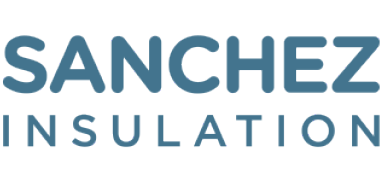FAQs
Sanchez Insulation Inc.
Have an insulation industry-related question? We have the answer. Check out these FAQs and give us a call today for more information!
Spray Foam Insulation FAQs
-
What is spray foam insulation?
Spray foam insulation is a type of insulation material that is applied as a liquid and expands into a foam to fill gaps and create an airtight barrier. It's commonly used to insulate walls, roofs, attics, and other areas in residential and commercial buildings. Here at Sanchez Insulation Inc, we've worked with spray foam insulation in Suffolk County, NY since 2005.
-
What are the types of spray foam insulation?
When installing spray foam insulation in Suffolk County, NY, there are two main types: open-cell and closed-cell spray foam. Open-cell foam is less dense and has a spongy texture, while closed-cell foam is denser and provides a higher R-value (thermal resistance). The closed-cell foam also acts as a moisture barrier.
-
What are the benefits of spray foam insulation?
With years of installing spray foam insulation in Suffolk County, NY, we've noted several great benefits. For example, it provides excellent thermal insulation, seals air leaks, improves indoor air quality by reducing allergens and pollutants, and can strengthen a building's structural integrity. It also provides noise reduction and moisture control.
-
How is spray foam insulation installed?
Spray foam insulation is applied using specialized equipment that combines two chemical components (polyol and isocyanate) at the point of application. These components mix and react to create the expanding foam, which adheres to surfaces and hardens within a short time. As you need to work quickly and efficiently, we recommend always calling commercial insulation companies in Suffolk County, NY and never attempting to insulate your property on your own.
-
Is spray foam insulation expensive?
Spray foam insulation is generally more expensive upfront compared to traditional insulation materials. However, its energy-saving benefits and long-term durability can result in significant savings on heating and cooling costs over time.
According to Energy Star, homeowners can save an average of 15% on heating and cooling costs (or an average of 11% on total energy costs) by air sealing their homes and adding insulation in attics, floors over crawl spaces, and accessible basement rim joists. As such, when installing spray foam insulation in Suffolk County, NY, you'll likely save more money with that initial investment.
-
How long does spray foam insulation last?
When properly installed, spray foam insulation in Suffolk County, NY can last for decades without significantly degrading. Its longevity can contribute to the overall durability of the building.
Fiberglass Insulation FAQs
-
What is fiberglass insulation?
Fiberglass insulation is a type of insulation material made from fine glass fibers. It comes in various forms, including batts, rolls, and loose-fill, and is used to insulate walls, ceilings, floors, and attics. Contact commercial insulation companies in Suffolk County, NY to decide upon which insulation works best for you.
-
How does fiberglass insulation work?
Fiberglass insulation works by trapping pockets of air between the glass fibers. These air pockets slow down the transfer of heat, providing thermal resistance and helping to maintain comfortable indoor temperatures. Great commercial insulation companies in Suffolk County, NY will be able to install the insulation without any air pockets or gaps.
-
What are the benefits of using fiberglass insulation?
When properly installed by commercial insulation companies in Suffolk County, NY, fiberglass insulation is cost-effective, readily available, and easy to install. It provides good thermal insulation, helps reduce energy consumption, and can also help with soundproofing.
-
What are fiberglass batts and rolls?
Fiberglass batts and rolls are pre-cut sheets of insulation that are designed to fit between standard framing members, such as studs and joists. They are available in different thicknesses and widths to suit various applications.
-
What is loose-fill fiberglass insulation?
Loose-fill fiberglass insulation consists of small glass fibers that are blown or poured into cavities or spaces using specialized equipment. It's often used in areas with irregular shapes or hard-to-reach spaces.
-
Is fiberglass insulation safe?
Fiberglass insulation is generally considered safe to use when handled properly. It's important to wear protective gear, such as gloves and a mask, when installing it to avoid skin irritation and respiratory discomfort due to the fine fibers.
-
Does fiberglass insulation require a vapor barrier?
In some cases, especially in colder climates, a vapor barrier might be recommended to prevent moisture from condensing within the insulation. This can help avoid issues like mold growth and reduced insulation effectiveness.
-
What is the R-value of fiberglass insulation?
The R-value of fiberglass insulation varies based on its thickness and density. Common R-values for fiberglass insulation range from around R-11 to R-38 for standard residential applications.
-
Can fiberglass insulation help with soundproofing?
Yes, fiberglass insulation can provide some degree of soundproofing by absorbing and dampening sound waves. Thicker and denser insulation typically provides better soundproofing capabilities.
-
How long does fiberglass insulation last?
Fiberglass insulation can have a long lifespan, often lasting for decades if properly installed by commercial insulation companies in Suffolk County, NY. Once installed, it must not be subjected to moisture damage or compression. Over time, it may settle slightly, reducing its effectiveness, but this can often be corrected by adding more insulation.
-
Can I install fiberglass insulation myself?
Yes, fiberglass insulation can be installed as a DIY project. However, proper installation techniques are important to ensure optimal insulation performance. Incorrect installation, such as leaving gaps or compressing the material, can reduce its effectiveness.
-
Is fiberglass insulation eco-friendly?
Fiberglass insulation is made from recycled glass and is relatively eco-friendly in terms of its manufacturing process. However, it's not as energy efficient as some other insulation materials, so it's important to consider your specific environmental goals.
Polyurea Insulation FAQs
-
What is polyurea insulation?
Polyurea insulation is a type of spray-applied insulation material that is derived from polyurethane. It forms a seamless and durable protective layer that can be used for insulation, waterproofing, and corrosion resistance.
-
How is polyurea insulation applied?
Polyurea insulation is typically applied using specialized spray equipment. Two liquid components, isocyanates and resin blends, are mixed and sprayed onto surfaces. The material then expands and cures rapidly to form a seamless, protective layer.
-
What are the benefits of polyurea insulation?
Polyurea insulation offers excellent thermal insulation properties, as well as exceptional resistance to water, chemicals, and abrasion. It forms a seamless and flexible barrier that can adapt to different surfaces and shapes.
-
Is polyurea insulation suitable for both residential and commercial use?
Yes, polyurea insulation is versatile and can be used in a variety of applications, including residential homes, commercial buildings, industrial facilities, and even for waterproofing roofs, decks, and basements.
-
What makes polyurea insulation different from other insulation types?
Polyurea insulation sets rapidly, often within seconds, and forms a continuous, seamless layer that adheres strongly to surfaces. This quick curing time allows for faster installation compared to some other insulation materials.
-
Can polyurea insulation help with energy efficiency?
Yes, polyurea insulation's thermal insulating properties can help improve energy efficiency by reducing heat transfer through walls, roofs, and other surfaces, thus lowering heating and cooling costs.
-
Is professional installation necessary for polyurea insulation?
Yes, professional installation is recommended for polyurea insulation. The application process requires specialized equipment and proper training to ensure the material is applied correctly and safely.
-
Is polyurea insulation environmentally friendly?
The environmental impact of polyurea insulation can vary based on the specific formulation used. Some formulations may contain volatile organic compounds (VOCs) during application, so it's important to choose low-VOC or eco-friendly options if environmental concerns are a priority.
-
Can polyurea insulation be used for soundproofing?
While polyurea insulation can offer some soundproofing benefits due to its dense and flexible nature, it is not typically used primarily for soundproofing purposes. However, it can contribute to reducing sound transmission to some extent.
-
What is the lifespan of polyurea insulation?
When properly installed, polyurea insulation can have a long lifespan. Its durable and seamless nature can help it withstand environmental factors, making it a long-lasting option for insulation and protective coatings.
-
Can polyurea insulation be applied in cold weather?
Polyurea insulation can be applied in a range of temperatures, including cold weather. Some formulations are designed to cure rapidly even in low temperatures, making it a versatile choice for various climates.
-
Is polyurea insulation resistant to moisture and water damage?
Yes, one of the notable features of polyurea insulation is its resistance to water and moisture. It creates a seamless barrier that can effectively protect against water intrusion and damage.


Share On: